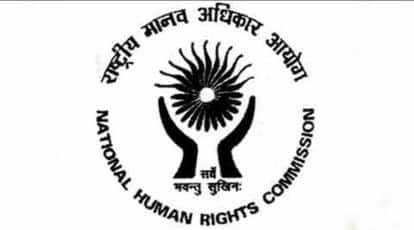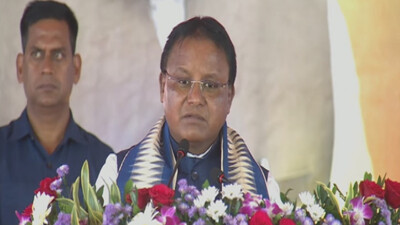New Delhi: The National Human Rights Commission (NHRC) has issued a new advisory to protect the rights of children by combating the production, distribution, and consumption of Child Sexual Abuse Material (CSAM) on the internet.
The tremendous increase in the production, distribution and consumption of CSAM needs to be imperatively addressed as it may have a lasting psychological impact on the child leading to further disruption of his/her overall development, the human rights body said.
According to the advisory, there has been a ‘colossal’ rise in CSAM on the internet across the globe, with more than 1,500 instances of publishing, storing, and transmitting CSAM being reported in 2021.
According to the NHRC, about 450,207 cases of CSAM have been reported in 2023 so far. 204,056 cases reported in 2022 and 163,633 cases reported in 2021.
The four-part advisory released by NHRC on Friday aims to address the legal gaps in laws concerning CSAM and offers suggestions regarding training officials and offering support to survivors of sexual abuse, creating a specialised law enforcement team to investigate CSAM crimes, and regulating internet websites to monitor and block CSAM content online.
In the first part of the four-part advisory, the National Human Rights Commission has made a recommendation that “the phrase ‘Child Pornography’ in Section 2(1) (da) of the POCSO Act, 2012 should be replaced with ‘Child Sexual Abuse Material’ (CSAM). Terms like ‘use of children in pornographic performances and materials’, ‘child sexual abuse material’ and ‘child sexual exploitation material’ to be preferred over ‘Child Pornography’”.
The term “sexually explicit” needs to be defined under Section 67B of the IT Act, 2000 to ensure the prompt identification and removal of online CSAM, the rights panel has said in the advisory.
Considering the gravity of the offence, the current quantum of punishment for offences pertaining to online CSAM under Section 14 of the POCSO Act and Section 67B of the IT Act (seven years or less) “may be relooked or exempt the application of Section 41A CrPC by making appropriate legislative changes,” it says.
“Intermediaries, including social media platforms, Over-The-Top (OTT) applications and Cloud Service Providers, must deploy technology, including content moderation algorithms, to proactively detect CSAM on their platforms and remove the same. Similarly, platforms using end-to-end encryption services may be mandated to devise additional protocols/ technology to monitor the circulation of CSAM. Failure to do so to invite withdrawal of ‘safe harbour’ clause under Section 79, IT Act, 2000,” reads the advisory.
ISPs, web browsers and OTT players to ensure that pop-up warning messages are displayed for searches related to CSAM, the NHRC has recommended.
“A specialised central police unit in the government of India to deal with CSAM-related matters, including detecting CSAM content, maintaining its repository, analysing patterns, assisting investigative agencies, initiating the process for takedown of content and so forth, be established.
“It should consist of experts in identification and investigation of CSAM in order to focus on identifying and apprehending CSAM offenders both in dark web and open web and developing a comprehensive and coordinated response of investigation and law,” the advisory read.
Every state and UT should have at least one specialised police unit for the detection and investigation of CSAM-related cases and the apprehension of offenders. The government of India will assist the setting up and equipping these units, for instance, through grants under the Modernisation of State Police Forces (MPF) Scheme, Police Technology Mission and Nirbhaya Fund, it added.
A national database of CSAM with hash values of known CSAM be created by the proposed specialised central police unit so that the required content be blocked by intermediaries. This should be maintained by the proposed specialised central police unit, the recommendation reads.
It has also recommended training courses for and sensitisation of officials and psycho-social care and support for survivors.
Survivors of CSAM should be provided support services and opportunities for rehabilitation through various means, like partnerships with civil society and other stakeholders. Psycho-social care centres may be established in every district to facilitate need-based support services and organization of stigma eradication programmes, it says.


















